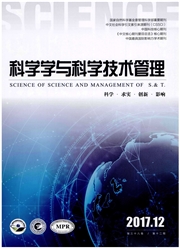

 中文摘要:
中文摘要:
对员工生涯资本的投资能否为组织创造积极的价值以及如何创造价值,目前在理论和实践领域都尚无定论。研究检验了生涯适应力对工作敬业和离职意向的影响以及个体环境匹配在其中的中介作用。在367份有效问卷的基础上,通过层次回归分析和结构方程模型检验,结果表明:生涯适应力对工作敬业有显著的正向影响,对离职意向有显著的负向影响;个体环境匹配在生涯适应力与工作敬业之间起到部分中介作用,在生涯适应力与离职意向之间起到完全中介作用;生涯适应力总体上有利于提高员工的工作敬业度,降低员工离职意向。因此,员工生涯资本投资为组织带来了积极的价值,可以为组织保留优秀的员工并使员工对工作更加敬业。
 英文摘要:
英文摘要:
Whether cultivating employees' career adaptability could create meaningful value and bring positive benefits to organizations and what is the impact mechanism? There is still no definite answer in both theoretical and practical field. In this study, we investigate the influence of career adaptability on employees' work engagement and turnover intention, and also the mediating effects of person-environment fit between them. Based on 367 valid questionnaires, we analyze the data using hierarchical regression analysis and structural equation modelling (SEM) The following conclusions have been drawn: career adaptability has a significant positive effect on work engagement and a significant negative effect on turnover intention; person-environment fit plays an partial intermediary role between the relationship of career adaptability and work engagement while playing an full intermediary role between the relationship of career adaptability and tumover intention; overall, career adaptability enhance employees work engagement while reduces their turnover intention. Therefore, improving employees' career adaptability brings great value to organization through retaining excellent employees and motivating them to engage in current work.
 同期刊论文项目
同期刊论文项目
 同项目期刊论文
同项目期刊论文
 期刊信息
期刊信息
